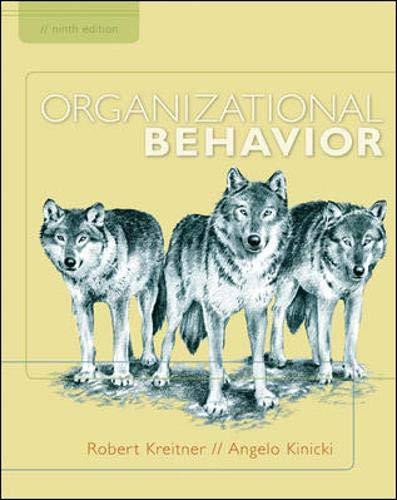TANG YINGHONG WAS CAUGHT IN AN IMPOSSIBLE squeeze. For years, his employer, Ningbo Beifa Group, had prospered
Question:
TANG YINGHONG WAS CAUGHT IN AN IMPOSSIBLE squeeze. For years, his employer, Ningbo Beifa Group, had prospered as a top supplier of pens, mechanical pencils, and highlighters to Wal-Mart Stores and other major retailers. But late last year, Tang learned that auditors from Wal-Mart, Beifa’s biggest customer, were about to inspect labor conditions at the factory in the Chinese coastal city of Ningbo where he worked as an administrator. Wal-Mart had already on three occasions caught Beifa paying its 3,000 workers less than China’s minimum wage and violating overtime rules, Tang says. Under the U.S. chain’s labor rules, a fourth offense would end the relationship.
Help arrived suddenly in the form of an unexpected phone call from a man calling himself Lai Mingwei.
The caller said he was with Shanghai Corporate Responsibility Management & Consulting Co., and for a $5,000 fee, he’d take care of Tang’s Wal-Mart problem.
“He promised us he could definitely get us a pass for the audit,” Tang says.
Lai provided advice on how to create fake but authentic-looking records and suggested that Beifa hustle any workers with grievances out of the factory on the day of the audit, Tang recounts. The consultant also coached Beifa managers on what questions they could expect from Wal-Mart’s inspectors, says Tang. After following much of Lai’s advice, the Beifa factory in Ningbo passed the audit earlier this year, Tang says, even though the company didn’t change any of its practices.
For more than a decade, major American retailers and name brands have answered accusations that they exploit “sweatshop” labor with elaborate codes of conduct and on-site monitoring. But in China many factories have just gotten better at concealing abuses. Internal industry documents reviewed by BusinessWeek reveal that numerous Chinese factories keep double sets of books to fool auditors and distribute scripts for employees to recite if they are questioned. And a new breed of Chinese consultant has sprung up to assist companies like Beifa in evading audits. “Tutoring and helping factories deal with audits has become an industry in China,” says Tang, 34, who recently left Beifa of his own volition to start a Web site for workers.
A lawyer for Beifa, Zhou Jie, confirms that the company employed the Shanghai consulting firm but denies any dishonesty related to wages, hours, or outside monitoring. Past audits had “disclosed some problems, and we took necessary measures correspondingly,” he explains in a letter responding to questions. The lawyer adds that Beifa has “become the target of accusations” by former employees “whose unreasonable demands have not been satisfied.” Reached by cell phone, a man identifying himself as Lai says that the Shanghai consulting firm helps suppliers pass audits, but he declines to comment on his work for Beifa. BusinessWeek has informed executives at Wal-Mart about these allegations. What would you do if you were an executive at Wal-Mart?
1. Ningbo Beifa Group passed the most recent audit, so I would let these results stand for now.
2. What is done is done. However, I would investigate the allegations and then improve the future auditing procedures based on the results.
3. Investigate the allegations and discontinue working with Beifa if they are true.
4. Invent other options. Discuss.
Step by Step Answer:






